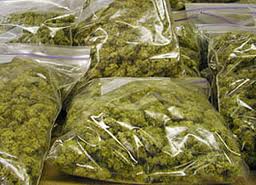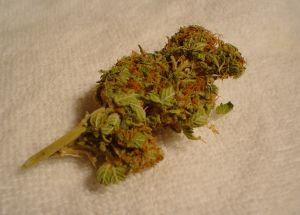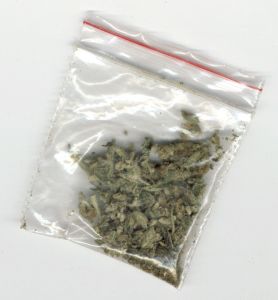 The Maryland Legislature is scheduled to begin its 2013 legislative session next month, and marijuana is one issue that is sure to be hotly debated. Medical marijuana supporters and personal use advocates alike hope that this year’s session makes more progress in the fight for decriminalization. Toward the end of last year’s legislative session, the head of the state’s department of health went on record saying that he would not support decriminalization as long as federal law continued to define pot as an illegal controlled substance. The department head cited concerns that his state employees could be subject to federal prosecution under the controlled substances act and there would be nothing the state could do to protect them. The head of any state agency has a duty to protect his or her employees, but the broader issue is also that state lawmakers want to protect their constituents as well. It would certainly not look good for Annapolis if Maryland citizens were being prosecuted federally for following a law that their own delegates supported and eventually passed. But supporters of marijuana decriminalization have hope that this year will be different based on two influential votes on this past Election Day.
The Maryland Legislature is scheduled to begin its 2013 legislative session next month, and marijuana is one issue that is sure to be hotly debated. Medical marijuana supporters and personal use advocates alike hope that this year’s session makes more progress in the fight for decriminalization. Toward the end of last year’s legislative session, the head of the state’s department of health went on record saying that he would not support decriminalization as long as federal law continued to define pot as an illegal controlled substance. The department head cited concerns that his state employees could be subject to federal prosecution under the controlled substances act and there would be nothing the state could do to protect them. The head of any state agency has a duty to protect his or her employees, but the broader issue is also that state lawmakers want to protect their constituents as well. It would certainly not look good for Annapolis if Maryland citizens were being prosecuted federally for following a law that their own delegates supported and eventually passed. But supporters of marijuana decriminalization have hope that this year will be different based on two influential votes on this past Election Day.
As readers of this blog and those who have been following national drug laws are aware, Colorado and Washington State voted to decriminalize personal marijuana use. Both states, and close to 20 others including Washington D.C. already had medical marijuana laws on the books, but this past election took the movement to new heights. Local advocates back here in Maryland are now optimistic that the legislature will consider the Colorado and Washington laws in crafting their own legislation. Obviously we cannot expect that Annapolis will jump on board with personal use decriminalization, but medical marijuana laws in this year’s session are a distinct possibility. There is no official word from the Governor’s office to date that would indicate which way O’Malley is leaning, and his future political aspirations could play into his decision to support a medical use law. A politician with greater aspirations is likely to be more conservative in his or her final years. For now though, lobbyists, grass roots advocates, and users have some reason for optimism.
Continue reading →
 Criminal Defense Lawyer Blog
Criminal Defense Lawyer Blog


 Various states have recently been modifying and in some cases eradicating criminal penalties for marijuana possession and manufacturing. As a result law enforcement has seen an uptick in shipping the drug from a state where it is legal to a state that has yet to join the legalization party. Despite recent modifications in the controlled dangerous substance laws, marijuana continues to be illegal under state law, and thus local and federal law enforcement have focused a great deal of attention on intercepting packaged drugs headed toward Maryland. Recently a large number of federal search warrants were unsealed in Baltimore, allowing the public to take a look inside the process and procedure of apprehending suspects that take delivery of packaged drugs.
Various states have recently been modifying and in some cases eradicating criminal penalties for marijuana possession and manufacturing. As a result law enforcement has seen an uptick in shipping the drug from a state where it is legal to a state that has yet to join the legalization party. Despite recent modifications in the controlled dangerous substance laws, marijuana continues to be illegal under state law, and thus local and federal law enforcement have focused a great deal of attention on intercepting packaged drugs headed toward Maryland. Recently a large number of federal search warrants were unsealed in Baltimore, allowing the public to take a look inside the process and procedure of apprehending suspects that take delivery of packaged drugs. More campaign and lobbyist money was spent in 2012 than in any other election year in American history. Whether it was the estimated 3 billion dollars spent on the presidential race, or the 90 million dollars spend on expanding Maryland’s gambling laws, this Election Day will not soon be forgotten. And for those who have been fighting the decades long battle to legalize marijuana, this Election Day may go down in history as the vote that started it all. Two states, Colorado and Washington have passed laws that will effectively legalize the recreational use of marijuana. The Colorado law makes it legal for adults over the age of 21 to possess up to an ounce of pot, and authorizes homeowners to have up to 6 plants for the purposes of cultivating the drug. The Washington law also authorizes carrying up to an ounce, but requires that users buy their stash from state licensed distributors rather than growing it at home. Both states make still maintain that it is illegal to drive while under the influence of the drug, with Washington establishing a blood THC limit. Smoking marijuana in public will still be illegal and violators are subject to citation and fines similar to a public consumption of alcohol violation. Supporters of the propositions, which will turn into law within the next few months, were out in force celebrating the victory. Meanwhile, the opposition was left questioning the law’s supposed benefits as well as the complications that will accompany implication of the state laws.
More campaign and lobbyist money was spent in 2012 than in any other election year in American history. Whether it was the estimated 3 billion dollars spent on the presidential race, or the 90 million dollars spend on expanding Maryland’s gambling laws, this Election Day will not soon be forgotten. And for those who have been fighting the decades long battle to legalize marijuana, this Election Day may go down in history as the vote that started it all. Two states, Colorado and Washington have passed laws that will effectively legalize the recreational use of marijuana. The Colorado law makes it legal for adults over the age of 21 to possess up to an ounce of pot, and authorizes homeowners to have up to 6 plants for the purposes of cultivating the drug. The Washington law also authorizes carrying up to an ounce, but requires that users buy their stash from state licensed distributors rather than growing it at home. Both states make still maintain that it is illegal to drive while under the influence of the drug, with Washington establishing a blood THC limit. Smoking marijuana in public will still be illegal and violators are subject to citation and fines similar to a public consumption of alcohol violation. Supporters of the propositions, which will turn into law within the next few months, were out in force celebrating the victory. Meanwhile, the opposition was left questioning the law’s supposed benefits as well as the complications that will accompany implication of the state laws. Federal probation and parole in Maryland got a whole lot easier for some defendants from 2009 to 2010. Well, at least it was for the dozens of defendants who had been convicted of federal crimes, or recently released from federal custody and completed their mandatory drug testing requirements at the Maryland treatment centers of Clean and Sober or Drug and Alcohol Recovery. And it were the drug counselors and drug testers that were allegedly on the take of this large scale pay for pass scheme. According to indictment proceedings that were just released to the public, two former federal contractors from Rockville, Maryland were involved in a long standing bribery operation where drug testing results were falsified in exchange for monetary compensation. Both former drug testers had been under investigation for federal criminal charges including bribery, making false statements, and witness tampering, and both face considerable prison time. According to court documents, one drug tester pleaded guilty to bribery, and is awaiting sentencing while the other was recently indicted. The drug tester who did not plead guilty was arrested soon after the results of the grand jury investigation were released.
Federal probation and parole in Maryland got a whole lot easier for some defendants from 2009 to 2010. Well, at least it was for the dozens of defendants who had been convicted of federal crimes, or recently released from federal custody and completed their mandatory drug testing requirements at the Maryland treatment centers of Clean and Sober or Drug and Alcohol Recovery. And it were the drug counselors and drug testers that were allegedly on the take of this large scale pay for pass scheme. According to indictment proceedings that were just released to the public, two former federal contractors from Rockville, Maryland were involved in a long standing bribery operation where drug testing results were falsified in exchange for monetary compensation. Both former drug testers had been under investigation for federal criminal charges including bribery, making false statements, and witness tampering, and both face considerable prison time. According to court documents, one drug tester pleaded guilty to bribery, and is awaiting sentencing while the other was recently indicted. The drug tester who did not plead guilty was arrested soon after the results of the grand jury investigation were released. The ongoing battle marijuana to legalize marijuana in America and in Maryland took another hit recently as Federal prosecutors have increased efforts to crackdown on medical marijuana dispensaries. This latest crackdown effort came at the hands of Federal lawyers and court papers rather than with the search warrants and guns of the DEA and FBI. No arrests were made in any of the latest anti marijuana push, but a strong message has been sent across the country that the Feds are not ready to reverse their position on marijuana legalization.
The ongoing battle marijuana to legalize marijuana in America and in Maryland took another hit recently as Federal prosecutors have increased efforts to crackdown on medical marijuana dispensaries. This latest crackdown effort came at the hands of Federal lawyers and court papers rather than with the search warrants and guns of the DEA and FBI. No arrests were made in any of the latest anti marijuana push, but a strong message has been sent across the country that the Feds are not ready to reverse their position on marijuana legalization.  A Baltimore area marijuana dealer has been sentenced to over 20 years in prison after the jury found him guilty at trial. Defense lawyers were unable to overcome the strong evidence that federal prosecutors presented during two weeks of testimony in United States district court in Maryland. The convicted Baltimore drug dealer was arrested in 2010 and charged with distribution of marijuana and conspiracy to commit money laundering. Both the internal revenue service and the federal drug enforcement agency participated in the investigation, which ultimately let to a multi count indictment.
A Baltimore area marijuana dealer has been sentenced to over 20 years in prison after the jury found him guilty at trial. Defense lawyers were unable to overcome the strong evidence that federal prosecutors presented during two weeks of testimony in United States district court in Maryland. The convicted Baltimore drug dealer was arrested in 2010 and charged with distribution of marijuana and conspiracy to commit money laundering. Both the internal revenue service and the federal drug enforcement agency participated in the investigation, which ultimately let to a multi count indictment. Baltimore City police officers were recently found guilty of conspiracy under color of law, and extortion in Federal criminal court. A Federal jury found one officer guilty after trial, and the other accepted a negotiated guilty plea hours before the jury began deliberating. Federal sentencing guidelines provide a maximum penalty of 5 years in prison for conspiracy under color of law, and a maximum of 20 years in prison and a $250,000 fine for extortion. A Federal judge will hand down the sentence for the officer, from Edgewood Maryland, convicted at trial at sentencing hearing in March.
Baltimore City police officers were recently found guilty of conspiracy under color of law, and extortion in Federal criminal court. A Federal jury found one officer guilty after trial, and the other accepted a negotiated guilty plea hours before the jury began deliberating. Federal sentencing guidelines provide a maximum penalty of 5 years in prison for conspiracy under color of law, and a maximum of 20 years in prison and a $250,000 fine for extortion. A Federal judge will hand down the sentence for the officer, from Edgewood Maryland, convicted at trial at sentencing hearing in March.